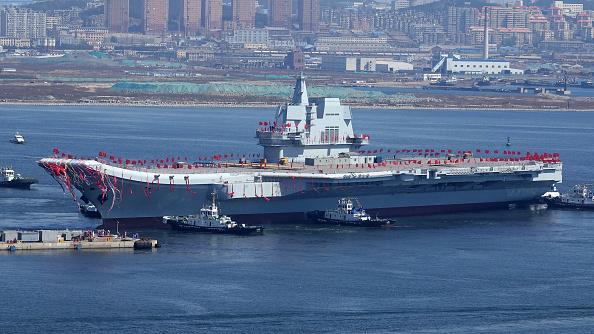The deaths of three shipbuilding researchers, who drowned while trying to save an experimental floating platform that was being battered by Typhoon Rumbia, have revealed defects in the Chinese Communist Party’s military plans and might affect the future development of Chinese aircraft carriers or nuclear submarines, military experts say.
The three late experts—Huang Qun, Song Yuecai, and Jiang Kaibin—worked for the state-owned China Shipbuilding Industry Corp. (CSIC), which often does business with the Chinese military. CSIC is China largest conglomerate in designing, manufacturing, and trading of military and civilian ships, marine engineering, and marine equipment.





